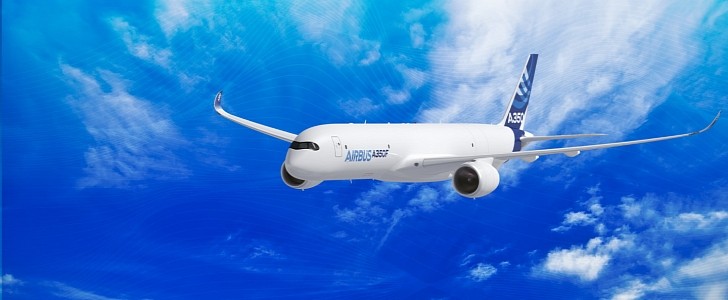We are witnessing a transition period across multiple industries, and commercial aviation is set to operate mostly new-generation aircraft, with increased fuel efficiency, by 2040. Major players in the aeronautics world, such as Airbus, have already been developing aircraft that can fulfill this requirement, as demand continues to increase across the globe.
With its dense population, the Asia-Pacific was one of the main drivers in global air traffic before suffering a setback due to the global health crisis. But, according to Airbus, it’s gearing up to reach those high levels again, in the upcoming years, resulting in a traffic growth by more than 5% annually, and a wave of new aircraft, both passenger and freight, coming in.
One of the major factors for this growth is related to the ascension of the middle class – basically, more and more people will be likely to travel, increasing the number of air transport passengers by a huge percentage, over the next two decades. On the other hand, most governments and industry partners are supporting the replacement of older aircraft that are less fuel efficient with newer ones that are eco-friendly and sustainable.
According to Airbus, more than 17,500 new airplanes will be required for the Asia-Pacific region over the next decades, with 30% of them replacing older models. The largest chunk (13,6660) will be represented by smaller aircraft, like the A220 and A320 Family, while the new medium and large category aircraft will add up to almost 5,000.
Another interesting trend predicted by Airbus is that air freight transportation in the region is about to double by 2040. The annual increase percentage will be higher in the area than global average, and express freight transportation will grow even faster, due to the rise of e-commerce. This boost for cargo flights will require 2,440 aircraft over the next decades, and almost half of those will be new.
Airbus has been supporting decarbonizing efforts in various ways, including the launch of its A350F cargo aircraft, boasting efficiency gains of at least 10% and up to 40%, compared to similar-sized freighters.
Overall, while today only 13% of commercial aircraft in operation are newly-built, by 2040 they will become the majority, resulting in significant CO2 emissions cuts globally.
One of the major factors for this growth is related to the ascension of the middle class – basically, more and more people will be likely to travel, increasing the number of air transport passengers by a huge percentage, over the next two decades. On the other hand, most governments and industry partners are supporting the replacement of older aircraft that are less fuel efficient with newer ones that are eco-friendly and sustainable.
According to Airbus, more than 17,500 new airplanes will be required for the Asia-Pacific region over the next decades, with 30% of them replacing older models. The largest chunk (13,6660) will be represented by smaller aircraft, like the A220 and A320 Family, while the new medium and large category aircraft will add up to almost 5,000.
Another interesting trend predicted by Airbus is that air freight transportation in the region is about to double by 2040. The annual increase percentage will be higher in the area than global average, and express freight transportation will grow even faster, due to the rise of e-commerce. This boost for cargo flights will require 2,440 aircraft over the next decades, and almost half of those will be new.
Airbus has been supporting decarbonizing efforts in various ways, including the launch of its A350F cargo aircraft, boasting efficiency gains of at least 10% and up to 40%, compared to similar-sized freighters.
Overall, while today only 13% of commercial aircraft in operation are newly-built, by 2040 they will become the majority, resulting in significant CO2 emissions cuts globally.







